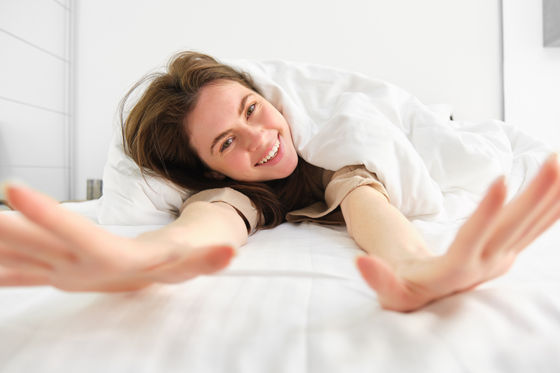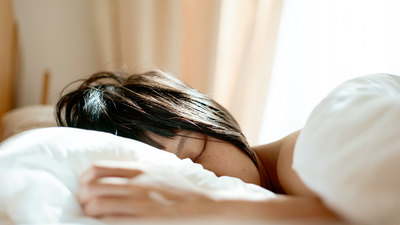It turns out that night owls have a 72% higher risk of diabetes, researchers say, ``Night owls may be better off working night shifts.''

The ideal timing for going to bed and waking up varies from person to person, but the majority of students and working adults have no choice but to wake up early, so there are many who get out of bed every morning with a feeling of being dragged back. A new study of more than 60,000 female nurses who often work night shifts reveals a significant link between ``
Chronotype, Unhealthy Lifestyle, and Diabetes Risk in Middle-Aged US Women: A Prospective Cohort Study: Annals of Internal Medicine: Vol 176, No 10
https://www.acpjournals.org/doi/10.7326/M23-0728
Evening chronotype linked to unhealthy lifestyles and increased diabetes risk, reveals cohort study
https://www.news-medical.net/news/20230912/Evening-chronotype-linked-to-unhealthy-lifestyles-and-increased-diabetes-risk-reveals-cohort-study.aspx
Night Owls Beware: Staying Up Late Tied to Increased Diabetes Risk
https://scitechdaily.com/night-owls-beware-staying-up-late-tied-to-increased-diabetes-risk/
Chronotype refers to a person's tendency to go to bed early or late, and it is not easy to change this through one's efforts because it is determined by genes. Previous research suggests that an estimated 8% of the population has a night owl chronotype, and that chronotype is associated with metabolic regulation, blood sugar levels, and the incidence of type 2 diabetes. However, the mechanism was not well understood.
To evaluate the relationship between chronotype and lifestyle-related disease risk and the influence of lifestyle that can be improved through effort, Tianyi Huang and colleagues at Harvard University Brigham and Women's Hospital compared self-reported chronotype and lifestyle habits. We conducted research to analyze disease trends.

The analysis used data from the Nurses' Health Study II, a health survey targeting female nurses. The data collection period was 2009 to 2017, and participants were 63,676 female nurses aged 45 to 62 with no history of cancer, cardiovascular disease, or diabetes. The breakdown of the participants' chronotypes was that approximately 11% were ``definite night types,'' approximately 35% were ``definite morning types,'' and the remaining half were ``intermediate types,'' meaning they tended to be either morning or evening types. There were people who had none or very little.
The study found that people with night owl chronotypes were 54% more likely to have unhealthy lifestyle habits than morning people, and had a 72% higher risk of developing diabetes. For example, night owls are more likely to drink more alcohol, eat a poorer diet, sleep less, smoke, and have unhealthy levels of weight, BMI, and physical activity than non-night owls. Apparently it happened often.
On the other hand, we also found that the association between chronotype and diabetes risk was significantly reduced when lifestyle factors were taken into account. Specifically, when adjusting for 'BMI,' 'physical activity,' and 'diet quality,' the diabetes risk increase rate was 31%, 54%, and 59%, respectively, and when all lifestyle factors were taken into account. reduced to 19%.
Commenting on the results, Sina Kianersi, lead author of the paper, said, ``Night owls have an increased risk of developing diabetes, but this risk decreases when taking into account unhealthy lifestyle habits such as smoking and poor eating habits.'' Some of the risk seems to be intrinsically related to chronotype, or body clock, but interestingly, 'night owls who work at night' 'We found no risk of diabetes, suggesting that aligning the way we work with our natural body clock rhythms may be beneficial.'

The research team points out that this study only shows the relationship between chronotype and diabetes risk, so it is not possible to conclude a causal relationship such as ``I got diabetes because I was a night owl''. It is emphasized that caution is required.
Tianyi Huang, who led the study, said, ``Night owl chronotypes may increase the risk of type 2 diabetes, so people who consider themselves to be ``night owls'' may need to change their lifestyle accordingly.'' We may need to pay attention to this.'
Related Posts:
in Science, Posted by log1l_ks







